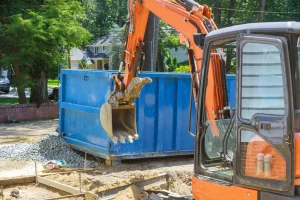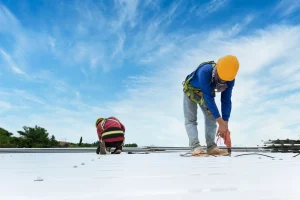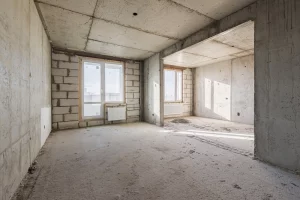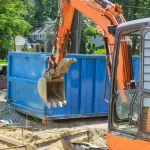Navigating construction waste disposal effectively is crucial for the success of any project. Understanding proper disposal techniques not only ensures compliance with regulations but also promotes sustainable practices. Efficient waste management minimizes environmental impact and can lead to cost savings.
Incorporating the right strategies into your disposal plan can enhance project efficiency and safety. As you explore the essential tips, consider how these practices can transform your approach to construction and demolition waste.
 When dealing with hazardous materials on construction sites, you must prioritize safety and compliance with regulations. Ensure that all hazardous waste is transported to facilities specifically designated for handling such materials. This prevents environmental contamination and protects public health.
You should familiarize yourself with local regulations concerning hazardous waste disposal. Adhering to these guidelines is crucial for legal compliance and helps reduce the risk of costly fines and penalties.
Utilize specialized services for hazardous waste removal whenever possible. Professionals are equipped with the necessary tools and knowledge to handle dangerous substances safely. They can also assist in navigating complex regulatory frameworks, ensuring your site remains in full compliance.
Remember that some materials, such as asbestos, require specific packaging and labeling before disposal. Adhering to these requirements is essential for safe transportation and disposal at the designated facility.
When dealing with hazardous materials on construction sites, you must prioritize safety and compliance with regulations. Ensure that all hazardous waste is transported to facilities specifically designated for handling such materials. This prevents environmental contamination and protects public health.
You should familiarize yourself with local regulations concerning hazardous waste disposal. Adhering to these guidelines is crucial for legal compliance and helps reduce the risk of costly fines and penalties.
Utilize specialized services for hazardous waste removal whenever possible. Professionals are equipped with the necessary tools and knowledge to handle dangerous substances safely. They can also assist in navigating complex regulatory frameworks, ensuring your site remains in full compliance.
Remember that some materials, such as asbestos, require specific packaging and labeling before disposal. Adhering to these requirements is essential for safe transportation and disposal at the designated facility.
 Setting up dedicated bins for materials like metal, wood, and concrete helps streamline the recycling process. This organization means materials aren’t contaminated, enhancing their recyclability.
Establish segregation stations to facilitate this process. These stations clearly mark where different types of waste should be disposed of, assisting your crew in maintaining a clean and efficient work environment.
Training your construction crew on the importance of waste segregation is crucial. Reinforcing these practices ensures that everyone understands their role in responsible waste disposal. This step not only promotes environmental benefits but also can reduce disposal costs over time.
Setting up dedicated bins for materials like metal, wood, and concrete helps streamline the recycling process. This organization means materials aren’t contaminated, enhancing their recyclability.
Establish segregation stations to facilitate this process. These stations clearly mark where different types of waste should be disposed of, assisting your crew in maintaining a clean and efficient work environment.
Training your construction crew on the importance of waste segregation is crucial. Reinforcing these practices ensures that everyone understands their role in responsible waste disposal. This step not only promotes environmental benefits but also can reduce disposal costs over time.
 Collaborating with regional eco-friendly disposal initiatives can enhance your construction project’s sustainability. These programs often provide specialized services tailored to eco-conscious waste management. By connecting with these initiatives, you can ensure that waste is managed responsibly, reducing the environmental footprint.
Participating in local collection programs for hazardous waste is crucial. Many communities have specific days or drop-off points dedicated to such waste, preventing contamination of local ecosystems. Make sure to label hazardous materials properly and follow local guidelines for disposal.
Partnering with green disposal services offers another advantage. These companies focus on recycling and responsible waste treatment. By choosing such partners, you contribute to a more sustainable construction industry. Engaging with regional programs not only meets regulatory requirements but also enhances your project’s reputation for environmental responsibility.
Collaborating with regional eco-friendly disposal initiatives can enhance your construction project’s sustainability. These programs often provide specialized services tailored to eco-conscious waste management. By connecting with these initiatives, you can ensure that waste is managed responsibly, reducing the environmental footprint.
Participating in local collection programs for hazardous waste is crucial. Many communities have specific days or drop-off points dedicated to such waste, preventing contamination of local ecosystems. Make sure to label hazardous materials properly and follow local guidelines for disposal.
Partnering with green disposal services offers another advantage. These companies focus on recycling and responsible waste treatment. By choosing such partners, you contribute to a more sustainable construction industry. Engaging with regional programs not only meets regulatory requirements but also enhances your project’s reputation for environmental responsibility.
 Understanding how to minimize environmental impact and implement sustainable disposal methods is crucial for contractors. By integrating these practices, you can contribute to a more eco-friendly construction industry while complying with regulations.
Understanding how to minimize environmental impact and implement sustainable disposal methods is crucial for contractors. By integrating these practices, you can contribute to a more eco-friendly construction industry while complying with regulations.
1) Dispose of Hazardous Materials at Designated Facilities
 When dealing with hazardous materials on construction sites, you must prioritize safety and compliance with regulations. Ensure that all hazardous waste is transported to facilities specifically designated for handling such materials. This prevents environmental contamination and protects public health.
You should familiarize yourself with local regulations concerning hazardous waste disposal. Adhering to these guidelines is crucial for legal compliance and helps reduce the risk of costly fines and penalties.
Utilize specialized services for hazardous waste removal whenever possible. Professionals are equipped with the necessary tools and knowledge to handle dangerous substances safely. They can also assist in navigating complex regulatory frameworks, ensuring your site remains in full compliance.
Remember that some materials, such as asbestos, require specific packaging and labeling before disposal. Adhering to these requirements is essential for safe transportation and disposal at the designated facility.
When dealing with hazardous materials on construction sites, you must prioritize safety and compliance with regulations. Ensure that all hazardous waste is transported to facilities specifically designated for handling such materials. This prevents environmental contamination and protects public health.
You should familiarize yourself with local regulations concerning hazardous waste disposal. Adhering to these guidelines is crucial for legal compliance and helps reduce the risk of costly fines and penalties.
Utilize specialized services for hazardous waste removal whenever possible. Professionals are equipped with the necessary tools and knowledge to handle dangerous substances safely. They can also assist in navigating complex regulatory frameworks, ensuring your site remains in full compliance.
Remember that some materials, such as asbestos, require specific packaging and labeling before disposal. Adhering to these requirements is essential for safe transportation and disposal at the designated facility.
2) Donate Usable Materials to Construction Recycling Programs
Donating usable construction materials can significantly reduce waste. Programs often accept materials like doors, windows, plumbing fixtures, and lumber. These items can be repurposed or sold, giving them a second life. You can contact local recycling centers or programs in your area to find out what materials they accept. This practice not only helps minimize waste but also supports community sustainability efforts. Consider working with organizations that specialize in building material recovery. They often have systems in place to effectively sort, transport, and distribute donated materials. This approach ensures that your surplus items are efficiently utilized. By donating, you contribute to a circular economy, keeping valuable resources in use and out of landfills. This simple action can make a meaningful impact on environmental conservation efforts.3) Utilize waste management services for bulk debris
Handling bulk debris is essential in construction. Waste management services offer efficient solutions for large-scale disposal needs. Renting a dumpster is a practical choice, as it provides an accessible and centralized location for waste collection. Evaluate the size and scope of your project to determine the appropriate dumpster size. Many companies offer online tools to help you select and schedule a dumpster delivery. This can streamline the entire process. Consider ongoing waste removal services to maintain a clean and organized site. This not only supports a healthier work environment but also keeps your project on schedule. Services such as those provided by Waste Removal USA prevent excess buildup of construction debris. Using waste management services ensures proper handling and disposal while reducing environmental impact. Enforcing such strategies promotes sustainability and compliance with local regulations.4) Separate recyclable materials on-site for easier processing
 Setting up dedicated bins for materials like metal, wood, and concrete helps streamline the recycling process. This organization means materials aren’t contaminated, enhancing their recyclability.
Establish segregation stations to facilitate this process. These stations clearly mark where different types of waste should be disposed of, assisting your crew in maintaining a clean and efficient work environment.
Training your construction crew on the importance of waste segregation is crucial. Reinforcing these practices ensures that everyone understands their role in responsible waste disposal. This step not only promotes environmental benefits but also can reduce disposal costs over time.
Setting up dedicated bins for materials like metal, wood, and concrete helps streamline the recycling process. This organization means materials aren’t contaminated, enhancing their recyclability.
Establish segregation stations to facilitate this process. These stations clearly mark where different types of waste should be disposed of, assisting your crew in maintaining a clean and efficient work environment.
Training your construction crew on the importance of waste segregation is crucial. Reinforcing these practices ensures that everyone understands their role in responsible waste disposal. This step not only promotes environmental benefits but also can reduce disposal costs over time.
5) Explore local landfill restrictions and guidelines
Understanding local landfill restrictions is essential in construction waste management. Regulations can vary significantly depending on your location. Before starting a project, make it a priority to familiarize yourself with the specific landfill regulations in your area. Not all materials are accepted at landfills. Hazardous materials, certain types of construction debris, and recyclable items might be restricted. Knowing these limitations helps you plan effective waste disposal methods. Contact local waste management authorities for detailed guidelines. They provide insights into what is accepted and any special handling required. This ensures compliance and smooth disposal processes across your projects.6) Use licensed disposal centers for chemical waste
Using licensed disposal centers for chemical waste is crucial to ensure safety and compliance. These centers are equipped to handle and dispose of waste according to regulations. By choosing a licensed provider, you minimize the risk of environmental contamination and health hazards. Proper disposal at licensed centers also shields you from legal liabilities. Regulations hold waste generators responsible, regardless of who disposes of the waste. Moreover, utilizing these centers helps maintain your reputation by demonstrating a commitment to safety and environmental responsibility. Partnering with reputable centers can be cost-efficient too. They often offer services like waste categorization and recycling. For example, companies like GFL Environmental provide comprehensive waste management solutions, reducing long-term costs and enhancing operational efficiency.7) Coordinate with regional eco-friendly disposal initiatives
 Collaborating with regional eco-friendly disposal initiatives can enhance your construction project’s sustainability. These programs often provide specialized services tailored to eco-conscious waste management. By connecting with these initiatives, you can ensure that waste is managed responsibly, reducing the environmental footprint.
Participating in local collection programs for hazardous waste is crucial. Many communities have specific days or drop-off points dedicated to such waste, preventing contamination of local ecosystems. Make sure to label hazardous materials properly and follow local guidelines for disposal.
Partnering with green disposal services offers another advantage. These companies focus on recycling and responsible waste treatment. By choosing such partners, you contribute to a more sustainable construction industry. Engaging with regional programs not only meets regulatory requirements but also enhances your project’s reputation for environmental responsibility.
Collaborating with regional eco-friendly disposal initiatives can enhance your construction project’s sustainability. These programs often provide specialized services tailored to eco-conscious waste management. By connecting with these initiatives, you can ensure that waste is managed responsibly, reducing the environmental footprint.
Participating in local collection programs for hazardous waste is crucial. Many communities have specific days or drop-off points dedicated to such waste, preventing contamination of local ecosystems. Make sure to label hazardous materials properly and follow local guidelines for disposal.
Partnering with green disposal services offers another advantage. These companies focus on recycling and responsible waste treatment. By choosing such partners, you contribute to a more sustainable construction industry. Engaging with regional programs not only meets regulatory requirements but also enhances your project’s reputation for environmental responsibility.
Understanding Contractor Disposal
Contractors play a key role in managing waste generated during construction projects. Proper disposal practices ensure environmental safety and adherence to legal standards.The Importance of Proper Disposal
Ensuring proper disposal of construction waste is critical. It minimizes the environmental impact of your projects and protects the surrounding ecosystem. You should separate waste into categories like recyclable, hazardous, and biodegradable. Using labeled containers helps maintain organization on-site and prevents hazardous waste from contaminating other materials. Mismanagement of waste can lead to hefty fines and tarnished reputations. Clients increasingly favor contractors who prioritize sustainable practices. Opting for responsible disposal methods, such as recycling, demonstrates commitment to sustainability. It also reduces the amount of waste sent to landfills, supporting community health and well-being.Regulatory Compliance
Compliance with waste disposal regulations is mandatory. You must familiarize yourself with local, state, and federal guidelines concerning construction waste. Penalties for non-compliance can be severe, including fines or legal action. Stay updated on changes in regulations by consulting with environmental agencies and attending industry workshops. Consider partnering with firms that specialize in construction waste disposal, as they are well-versed in the latest requirements. This collaboration ensures that you meet all legal obligations and maintain the trust of your clients. Thorough record-keeping, including waste type, quantity, and disposal method, helps in audits and demonstrates compliance. Using technology to track waste ensures accuracy and efficiency in meeting regulatory demands.Environmental Considerations
 Understanding how to minimize environmental impact and implement sustainable disposal methods is crucial for contractors. By integrating these practices, you can contribute to a more eco-friendly construction industry while complying with regulations.
Understanding how to minimize environmental impact and implement sustainable disposal methods is crucial for contractors. By integrating these practices, you can contribute to a more eco-friendly construction industry while complying with regulations.
Reducing Environmental Impact
To minimize environmental harm, you should begin with a comprehensive waste management plan. Measurements and predictions of waste generated during a project are essential. By tracking these, you can identify areas to cut unnecessary waste. Implementing reuse and recycling programs helps reduce the carbon footprint of construction activities. For instance, sorted materials such as metals and plastics can often be recycled. This practice not only decreases landfill contributions but also conserves resources. Awareness and training are vital. Ensuring that everyone on site knows the importance of minimizing waste and the methods to do so leads to better environmental outcomes. Regular audits can also highlight areas for further improvement.Sustainable Disposal Practices
Sustainable disposal involves choosing methods that are least harmful to the environment. Start by separating and correctly classifying all waste materials. This ensures that harmful substances are disposed of with the necessary precautions. Using eco-friendly disposal companies or facilities is another step towards sustainability. These organizations specialize in reducing the harmful effects traditionally associated with waste. Some facilities convert waste into energy, offering a dual benefit of reducing landfill use and generating power. Alternative disposal techniques, such as composting organic materials or utilizing construction waste for fill in new projects, can also be considered. These methods not only reduce waste but can provide additional benefits such as enhanced soil structure or material utilization.Frequently Asked Questions
Efficient construction waste management relies on proper planning and adherence to guidelines, enhancing environmental sustainability and reducing costs. Implementing procedures such as donating reusable materials and sorting recyclables can significantly aid in effective waste reduction.How can construction waste be minimized effectively?
You can minimize waste by planning the project’s design and ordering materials precisely to avoid excess. Donating surplus materials to construction recycling programs is also an effective strategy.What are the standard procedures for waste disposal on a construction site?
Standard procedures include evaluating the types of waste generated and using appropriate disposal methods. Utilize designated facilities for hazardous materials disposal, ensuring compliance with local regulations.Can you outline the steps for responsible construction waste management?
Implement waste management by separating recyclable materials on-site and arranging collection by specialized services. This approach reduces landfill usage and aids recycling efforts. Utilize waste management services for the bulk of debris to streamline the process.What are the best practices for contractors to handle disposal of materials?
Contractors should explore local landfill restrictions, sorting materials according to recycling capabilities, and utilizing donation programs. These practices are integral to sustainable management. Procuring services of waste management companies also ensures efficient handling of debris.Which methods are considered most efficient for clearing out construction debris?
Efficient methods include recycling and reusing materials whenever possible. Utilize waste management services to manage large volumes of construction debris. Such practices reduce environmental impact and disposal costs.How can the impact of construction waste on the environment be reduced?
Reduce environmental impact by disposing of hazardous materials at designated facilities and adhering to local landfill guidelines. Separating materials and opting for donation or recycling is essential for environmental conservation and sustainability.RECENT BLOGS

Date: March 06, 2025

Date: March 05, 2025

Date: February 26, 2025
Our Reviews
LATEST BLOGS







